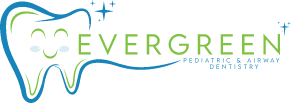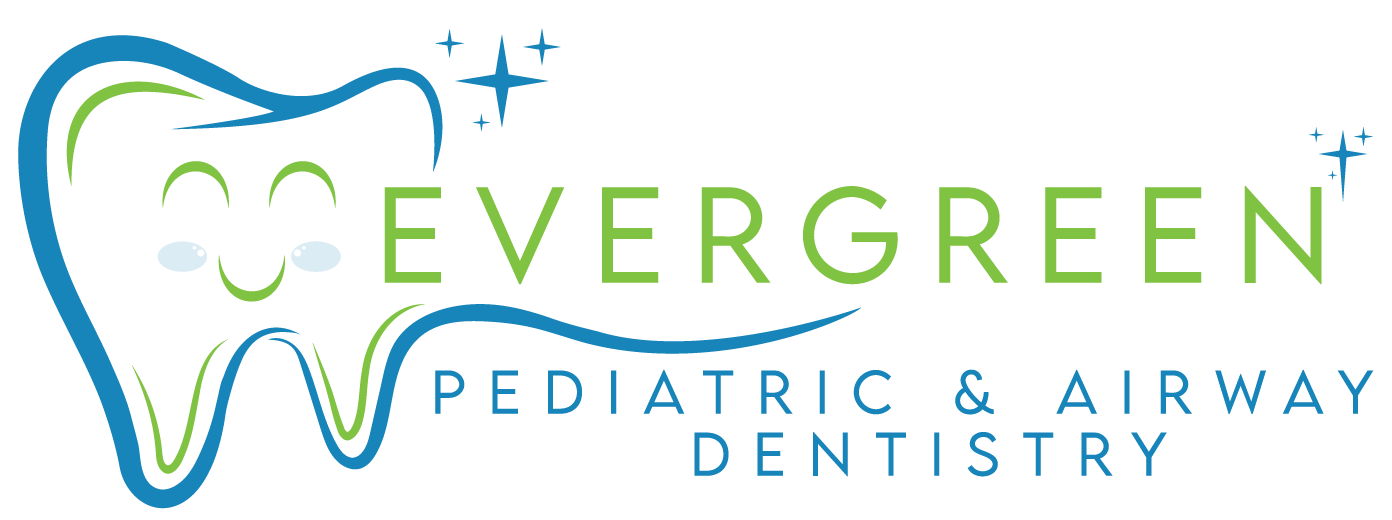Finding a Sleep-Disordered Breathing Specialist Near You
Over 50 million Americans struggle with sleep-disordered breathing conditions like sleep apnea, yet many spend months—or even years—searching for the right specialist to provide effective treatment. The journey to better sleep health shouldn’t feel like navigating a maze blindfolded.
Sleep-disordered breathing affects everything from your cardiovascular health to your daily energy levels, making proper diagnosis and treatment essential for your overall well-being. For parents, watching a child struggle with breathing issues during sleep creates additional urgency and concern about finding the most qualified care.
This comprehensive guide provides a clear roadmap for identifying, evaluating, and selecting the best sleep-disordered breathing specialist for your specific needs. Whether you’re seeking care for yourself or your child, you’ll gain the knowledge and confidence needed to make informed decisions about your sleep health journey.
Understanding Sleep-Disordered Breathing Specialists: Who Does What
Types of Sleep Specialists
The world of sleep medicine includes several specialist types, each bringing unique expertise to treating sleep-disordered breathing. Sleep medicine physicians hold board certification specifically in sleep disorders and typically provide comprehensive care for all types of sleep conditions. These specialists often serve as your primary coordinator for sleep-related health issues.
Pulmonologists focus on lung and respiratory system disorders, making them particularly valuable for complex cases involving both sleep-disordered breathing and underlying pulmonary conditions. ENT (ear, nose, and throat) surgeons specialize in airway anatomy and surgical interventions, offering solutions when structural issues contribute to breathing problems during sleep.
Board Certifications and Training
Board certification from the American Board of Sleep Medicine represents the gold standard for sleep specialist credentials. This certification requires completing an accredited sleep medicine fellowship program and passing comprehensive examinations covering all aspects of sleep disorders. Fellowship training typically lasts one year beyond residency and provides intensive, hands-on experience with sleep disorders diagnosis and treatment.
Scope of Practice Differences
Each type of sleep disorder specialist approaches diagnosis and treatment from their unique perspective and training background. Sleep medicine physicians typically emphasize comprehensive sleep studies, lifestyle modifications, and non-invasive treatments like continuous positive airway pressure (CPAP) therapy or oral appliance therapy.
Pulmonologists often excel at managing cases where sleep-disordered breathing coexists with other respiratory conditions like asthma or chronic obstructive pulmonary disease (COPD).

Sleep-Disordered Breathing Specialist
Building Your Search Strategy: Where to Start Looking
Professional Organization Directories
The American Academy of Sleep Medicine maintains a comprehensive directory of accredited sleep centers and board-certified sleep medicine physicians. This database allows you to search by location, specialty, and specific services offered, providing reliable information about qualified practitioners in your area. The American Sleep Apnea Association offers additional resources for finding specialists who focus specifically on sleep-disordered breathing conditions.
Healthcare System Networks
Major healthcare systems typically operate sleep centers staffed by multiple specialists working collaboratively. These programs often provide comprehensive care that includes initial evaluation, sleep studies, treatment initiation, and ongoing management all within the same healthcare network. Academic medical centers frequently offer access to the latest research developments and treatment innovations.
Referral Source Navigation
Your primary care physician or pediatrician serves as an excellent starting point for specialist referrals. These providers understand your medical history and can recommend specialists who are well-suited to your specific situation and healthcare needs. Existing specialists in related fields may also provide valuable referral recommendations.
Evaluating Specialist Credentials: What Qualifications Matter Most
Education and Training Background
Medical school reputation and residency training provide the foundation for specialist expertise, but fellowship training in sleep medicine represents the most critical credential for treating sleep-disordered breathing. Look for specialists who completed accredited sleep medicine fellowships at well-regarded institutions. Residency training in relevant specialties enhances a sleep medicine physician’s qualifications.
Professional Memberships and Certifications
Active membership in professional organizations like the American Academy of Sleep Medicine demonstrates ongoing commitment to staying current with developments in sleep medicine. These memberships often require continuing education and participation in professional development activities. Board certification maintenance requires ongoing education and periodic re-examination to ensure specialists stay updated on current best practices and treatment guidelines.
Research and Publication History
Research involvement demonstrates a specialist’s commitment to advancing the field and staying at the forefront of treatment developments. Specialists who conduct research often have access to the latest treatment innovations and may offer participation in clinical trials for promising new therapies. Publication history in peer-reviewed journals indicates expertise recognized by the broader medical community.
Technology and Treatment Capabilities: Assessing Practice Quality
Diagnostic Equipment Standards
Modern sleep laboratories equipped with current technology provide more accurate diagnoses and better patient experiences. Look for facilities that offer both attended overnight sleep studies and home sleep testing options to accommodate different patient needs and preferences. Advanced monitoring equipment allows specialists to gather detailed information about breathing patterns, oxygen levels, and sleep stages.
Treatment Method Diversity
Specialists offering multiple treatment options can provide personalized care tailored to your specific needs, preferences, and lifestyle factors. A comprehensive approach might include CPAP therapy, oral appliances, positional therapy, weight management support, and surgical consultations when appropriate. Access to different oral appliance options allows for customized treatment when CPAP therapy isn’t suitable or tolerated.
Pediatric-Specific Resources
Pediatric sleep specialists require specialized equipment designed for smaller patients and child-specific diagnostic criteria. Sleep studies for children often need different approaches to ensure accuracy while minimizing anxiety and discomfort for young patients. Child-friendly environments help reduce anxiety and improve cooperation during diagnostic testing and treatment consultations.

Sleep-Disordered Breathing Treatment Specialist
Insurance and Accessibility Considerations: Making Care Affordable
Insurance Network Participation
In-network specialists typically cost significantly less than out-of-network providers due to negotiated rates with insurance companies. Understanding your insurance plan’s network restrictions helps you identify covered specialists and avoid unexpected expenses. Out-of-network specialists may offer expertise or services unavailable within your network, but they often require higher out-of-pocket costs.
Prior Authorization Requirements
Sleep studies often require prior authorization from insurance companies before scheduling. This process typically involves submitting clinical information demonstrating medical necessity for diagnostic testing, which your referring physician can help coordinate. Treatment equipment like CPAP machines and oral appliances frequently require prior authorization and may have specific supplier or brand requirements.
Financial Assistance Options
Many sleep centers offer payment plans or financing options to help manage the cost of diagnostic testing and treatment. These arrangements can make care accessible even when insurance coverage is limited or unavailable. Equipment suppliers often provide rental programs or graduated payment options for CPAP machines and other treatment devices.
Geographic and Logistics Factors: Practical Care Considerations
Travel Distance Assessment
Initial consultations and sleep studies may justify longer travel distances to access highly qualified specialists or specialized facilities. However, ongoing care requires consideration of travel time and costs for regular follow-up visits and treatment adjustments. Local specialists may provide more convenient ongoing care even if initial diagnosis occurs elsewhere.
Appointment Availability
Highly regarded specialists often have longer wait times for new patient appointments, sometimes extending several months. Planning ahead and understanding typical wait times helps manage expectations and allows for scheduling around other commitments. Urgent cases may receive priority scheduling, especially when symptoms suggest significant health risks.
Telemedicine Opportunities
Telemedicine consultations can provide access to specialists located far from your home, particularly for initial evaluations or follow-up visits that don’t require physical examination. This technology expands your options for specialist care beyond local providers. Remote monitoring capabilities for CPAP therapy and other treatments allow specialists to track your progress and make adjustments without requiring frequent in-person visits.
Preparing for Your First Consultation: Maximizing Your Visit
Documentation and Medical History
Sleep diaries provide valuable information about your sleep patterns, symptoms, and potential triggers for sleep-disordered breathing episodes. Maintaining detailed records for several weeks before your consultation helps specialists understand your condition more completely. Previous test results, including sleep studies, imaging, and laboratory work, provide important baseline information for specialist review.
Question Preparation Strategy
Diagnostic questions should focus on understanding what tests are needed, how long results take to obtain, and what the testing process involves. Understanding the diagnostic timeline helps you plan for treatment initiation and other commitments. Treatment option questions should explore all available approaches, including benefits, risks, and expected outcomes for each option.
Family Involvement Planning
Family members often observe sleep-disordered breathing episodes that patients don’t remember, making their input valuable for accurate diagnosis. Planning for family participation ensures important observational information reaches your specialist. Pediatric consultations typically require active parent participation in discussing symptoms, treatment options, and ongoing management plans.

Sleep-Disordered Breathing Treatment
Red Flags and Quality Indicators: Making Smart Choices
Warning Signs to Avoid
Promises of immediate cures or guaranteed results should raise concerns, as sleep-disordered breathing typically requires ongoing management rather than one-time fixes. Legitimate specialists discuss realistic timelines and potential challenges in treatment. Lack of proper board certification or fellowship training in sleep medicine indicates insufficient specialized knowledge for complex sleep-disordered breathing cases.
Positive Quality Indicators
Comprehensive evaluation processes that include detailed history taking, physical examination, and appropriate diagnostic testing indicate thorough, quality care approaches. Specialists who take time to understand your complete health picture provide better treatment recommendations. Clear communication about diagnoses, treatment options, and expected outcomes demonstrates professionalism and respect for patient autonomy.
Patient Review Analysis
Online reviews can provide insights into patient experiences, but individual circumstances and treatment complexity affect outcomes significantly. Look for patterns in reviews rather than focusing on isolated positive or negative experiences. Professional reviews from referring physicians and colleagues often provide more reliable information about specialist competence and collaborative approach to care.
Evergreen Pediatric Dentistry: Your Child’s Sleep Health Advocate
Airway-Focused Dentistry:
Evergreen Pediatric Dentistry recognizes that healthy breathing patterns begin in childhood and can be significantly influenced by oral and facial development. Through comprehensive airway assessments, our team identifies potential breathing issues before they develop into serious sleep-disordered breathing conditions.
Our airway-focused approach examines tongue posture, jaw development, and nasal breathing patterns during routine dental visits. Early identification of problems like mouth breathing or improper tongue posture allows for interventions that support healthy airway development as children grow.
Early Intervention Benefits
Early intervention during childhood development years offers the greatest potential for positive outcomes in airway health. When breathing issues are identified and addressed promptly, children can avoid many of the complications associated with long-term sleep-disordered breathing.
Developmental factors that contribute to airway problems are most responsive to treatment during childhood growth periods. Orthodontic interventions, breathing exercises, and habit modification programs achieve better results when implemented early in development.
Collaborative Care for Families
Evergreen Pediatric Dentistry maintains collaborative relationships with pediatricians, ENT specialists, and sleep medicine physicians to ensure comprehensive care for children with breathing concerns. This team approach ensures that all aspects of airway health receive appropriate attention.
Communication between team members ensures that treatment approaches complement each other and address the underlying causes of breathing problems rather than just managing symptoms. This coordinated approach provides the best outcomes for children and peace of mind for families.
Take Action for Better Sleep Health Today
Finding the right sleep-disordered breathing specialist requires systematic evaluation of credentials, treatment capabilities, and practical factors, but this investment in proper care transforms your sleep health and overall quality of life. The comprehensive approach outlined in this guide empowers you to make informed decisions about specialist selection and treatment options.
Quality specialist care provides accurate diagnosis, effective treatment, and ongoing support for managing sleep-disordered breathing conditions. Whether you’re seeking care for yourself or your child, the right specialist becomes a valuable partner in achieving better sleep and improved health outcomes.
Don’t let sleep-disordered breathing continue compromising your health and well-being. Start your search for the right specialist today using these proven strategies, and take the first step toward transforming your sleep health journey.
Evergreen Pediatric & Airway Dentistry
Dr. Susan Kim
12910 Totem Lake Blvd NE #103
Kirkland, WA 98034
(425) 814-3196
Get Directions on Google Maps
evergreenkidsdentist.com


